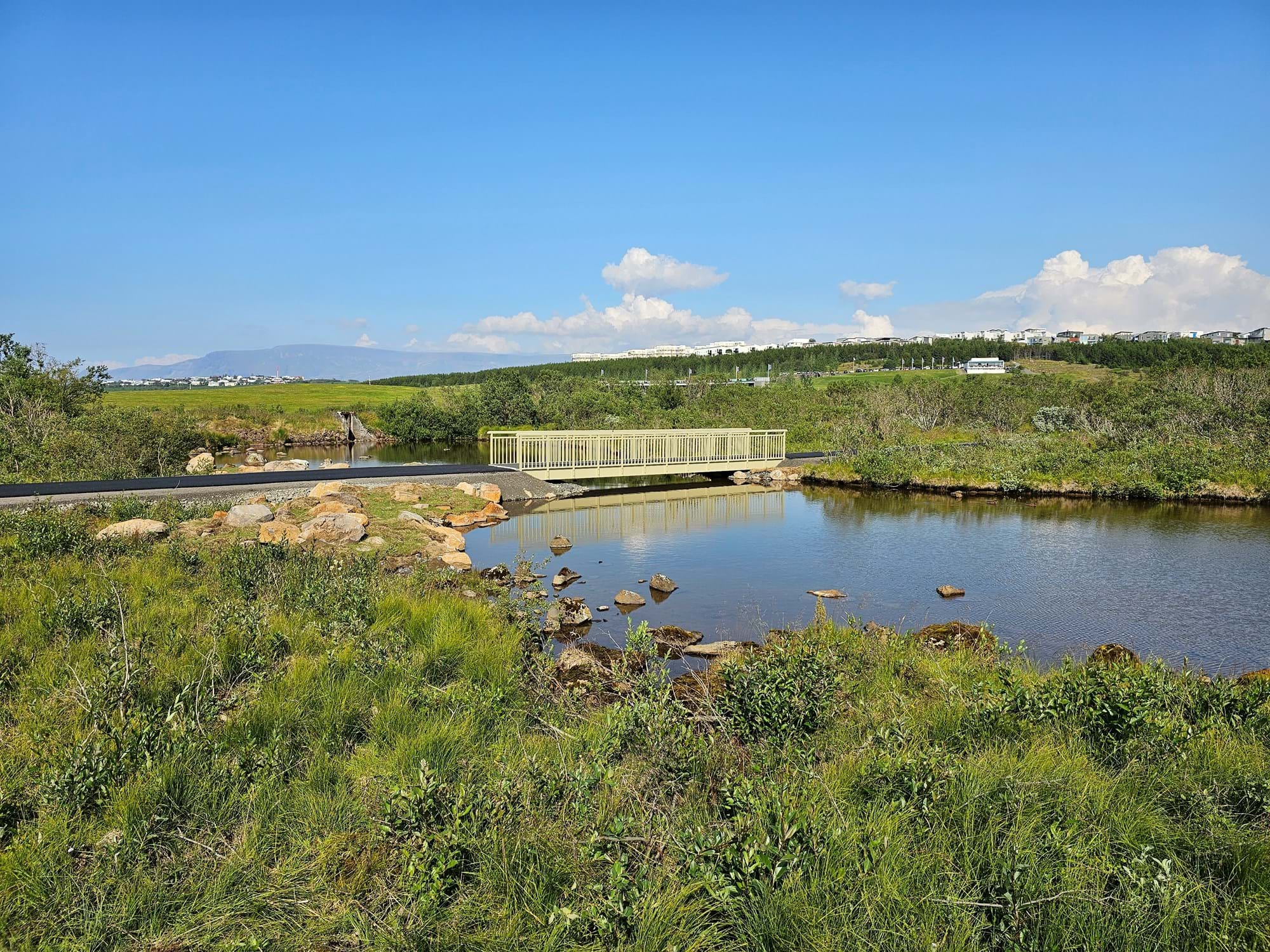

The new composite bridge from Fiberline on Reykjavik Golf Course spans 12 meters, is maintenance free and cheaper than alternatives in wood.
Ellert Thorarinsson is Course Manager on the oldest golf course on Iceland, dating back to 1934. Recently he was involved in finding a new bridge for the redesigned hole number 2 where golfers need to cross water both on foot and driving in buggies.
According to Ellert the task started on the internet searching for composite (fiberglass) bridges made from CE-marked profiles. The search took him to Fiberline Building Profiles’ webpage where he found what he was searching for; “most golf course bridges look the same and are all made from wood. We were looking for something out of the ordinary and found composites to be the right material” Ellert explains.
Besides looking for something that distanced Reykjavik Golf Course from all of the others, the task was clear:
Having discussed the potential solutions with Fiberline’s staff the decision was made to go for at bridge with carbon-reinforced fiberglass profiles that made the span possible while keeping the low weight of the finished construction.
“We received a bridge with a total weight of a little over 2 tons that is superior to the same construction in wood while being approximately 30% cheaper - we are delighted with the solution”, Ellert concludes.
The bridge is made from pultruded fiberglass profiles at Fiberline’s plant in Poland and machined and assembled on the same location.
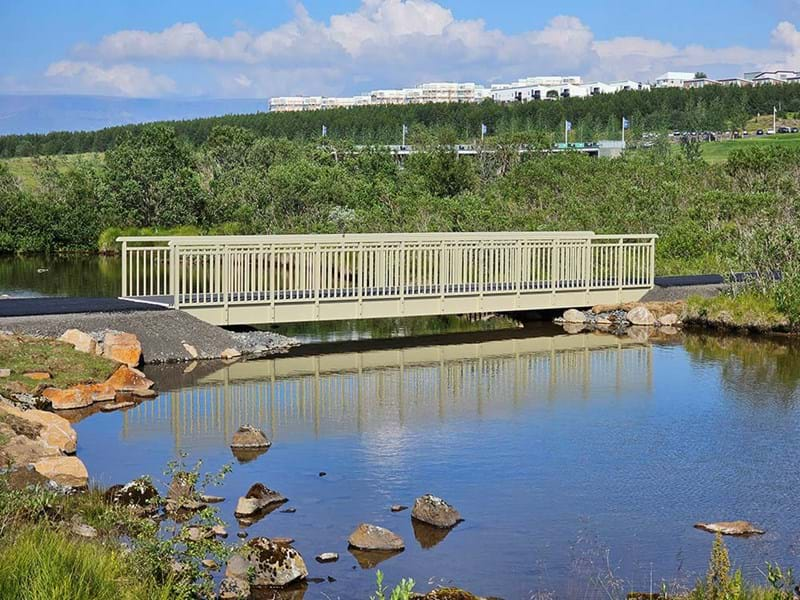
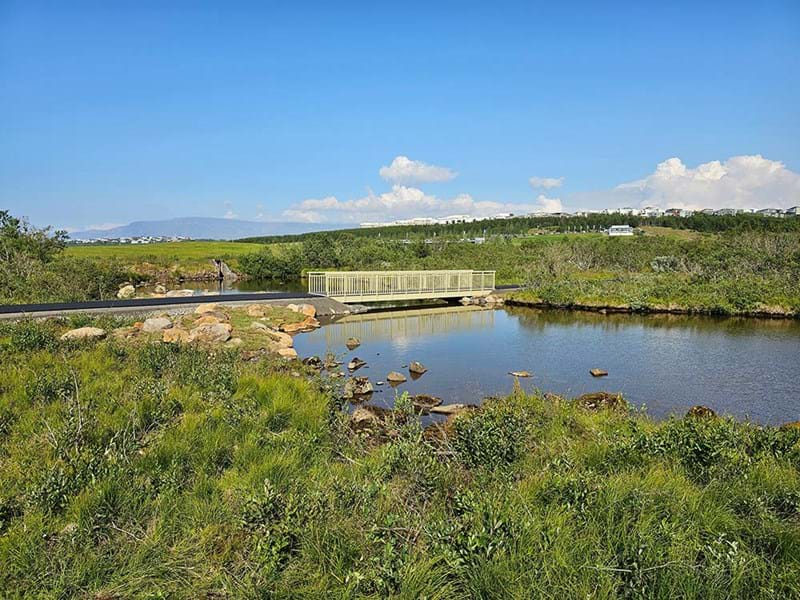
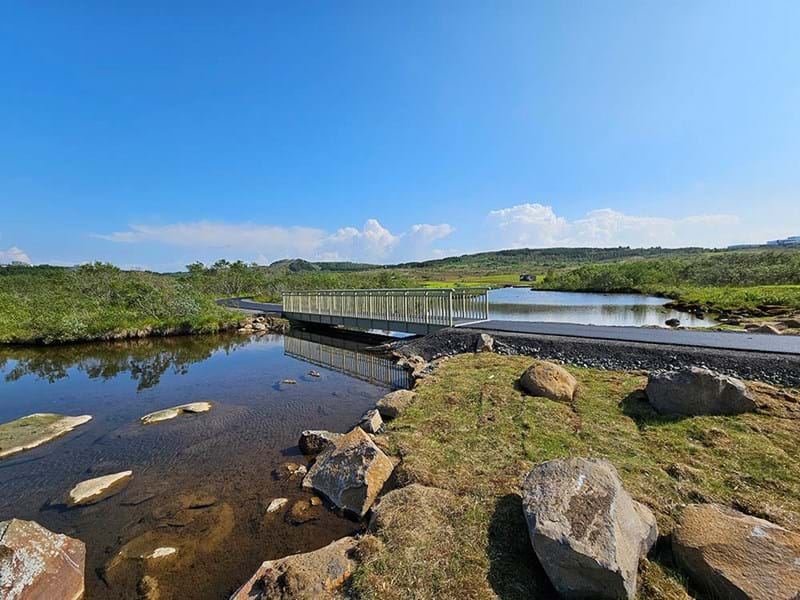
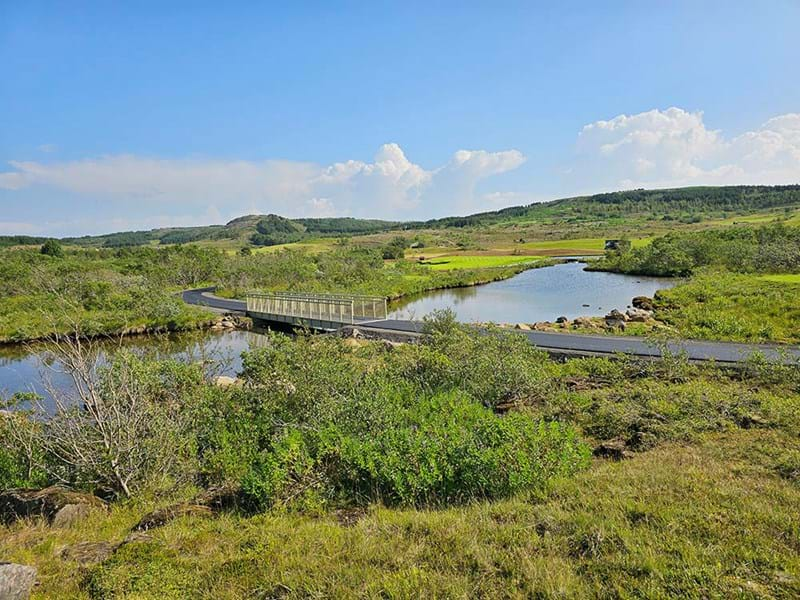

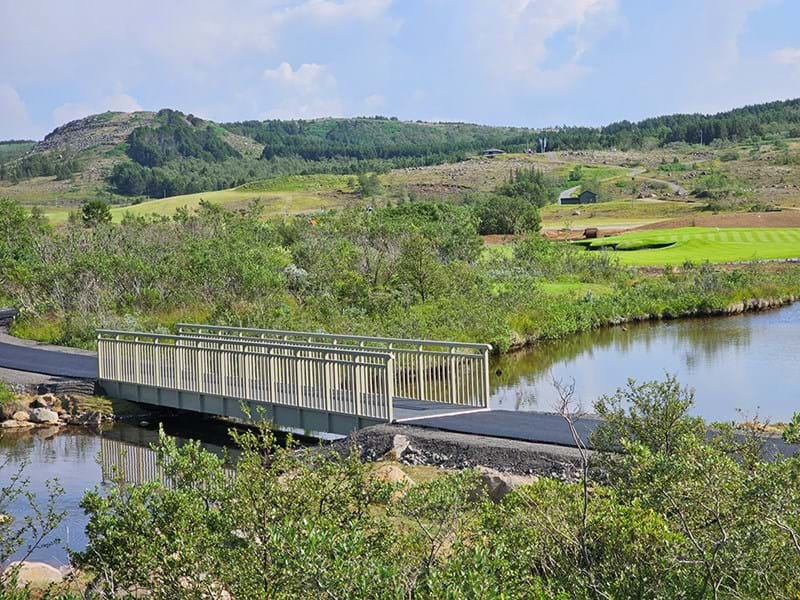






Learn more about fibreglass bridges.